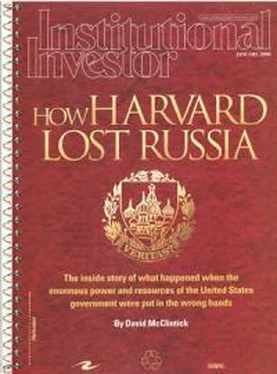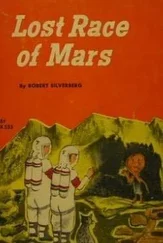In his book The End of Poverty: Economic Possibilities for Our Time (2004), Sachs writes that he told Krowacki he would not work for communists, and that he would consider becoming involved only when the martial-law government legalized Solidarity and lifted the house-arrest order placed on Lech Walesa. The passage marks an annoying feature of all of Sachs’s books, which is the ultracareful positioning of himself in the ongoing action he describes. The man is a walking billboard for the tiresome “virtue signaling” of contemporary liberalism.
Four weeks later Krowacki telephoned to inform Sachs that the government had decided to legalize Solidarity, and that was enough to get Sachs to make a one-day visit to Warsaw at the tail end of a trip to a Moscow conference in April 1989. When George Soros called several weeks later to ask if Sachs would accompany him on a trip to Warsaw to meet with both Solidarity and government officials, he was out the door like a shot. At the conclusion of the trip Soros agreed to finance a reform team under Sachs’s leadership through his newly formed Stefan Batory Foundation.
With money in the company tank, Sachs contacted David Lipton, a former student, coauthor, and partner in their Cambridge-based consultancy, Sachs & Associates, who was then working at the IMF. Thereafter, it was full-speed ahead to seduce Solidarity’s leading strategists, who, as men of politics and not of economics, were soon mesmerized by Sachs’s palaver and repeated assurances that his reforms “would work,” his insistence that they had the public behind them, and that now was the time to act. To ensure his team’s authority, he managed to obtain a billion-dollar Polish zloty-stabilization fund by boldly working a loose contact to Poland-friendly Republican Sen. Bob Dole, which got him a meeting with Brent Scowcroft and other George H.W. Bush administration officials. And he worked successfully to have $15 billion of Poland’s $40 billion in foreign debt forgiven.
Success misled Sachs. First, he attributed the debt relief to his own efforts, and not to Poland’s importance—as a wedge between Germany and Russia—to the U.S. empire. Poland was never going to be allowed to fail.
Working with Deputy Prime Minister Leszek Balcerowicz, Sachs shilled for what would become known as the theory of “shock therapy,” a souped-up, high-speed IMF-type program for transforming command economies into “free markets.” Shock therapy requires several significant actions to be taken simultaneously: making the currency convertible, eliminating subsidies, decontrolling prices, privatizing industry, and removing restrictions on imports—the costs of which are to be underwritten by massive infusions of First World capital. It was Bolivia all over again, and not, as Sachs had envisioned, the Wirtschaftwunder of 1948 in capitalist Germany. The cracks in shock therapy’s promised market utopia appeared quite quickly, and, just one year later, Sachs’s Polish friends let him know they’d be glad to see the back of him.
Sachs and his reform team found themselves among the horde of competing foreign consultants then swarming over the whole of Central and Eastern Europe, each with its eye on the grand prize: Russia. Having picked up light work advising Latvia, Lithuania, Hungary, and Slovenia, Sachs and Lipton came up short when Slovenia refused Sachs & Associate’s $300,000 billing. By the early 1990’s, Central Europeans had learned that, as one state official put it, “We are just solving your employment problem, not ours.”
The Hoover Institution’s Michael Bernstam, who was advising the Supreme Soviet, remarked, “It was just a joke, a meaningless appointment, but advising foreign countries was sexy! Very fashionable, like Hollywood. The super ambitious were academic Lotharios and not having some country to advise, well, it was the same as Don Juan without a beautiful woman on his arm.”
In May 1991, Bernstam encountered Sachs at a dinner party and later recalled, “Sachs had actually gotten in late and there weren’t so many countries. Poland wasn’t too happy with him, and when I asked him about it, he started telling me how he was leaving shortly for Mongolia, a vast wasteland where nomads live in tents or yurts constructed of animal hides.”
Still, business wasn’t too bad for Sachs, not with the tremendous opportunities for self-advertisement his patron Michael Weinstein was providing on the editorial page of the New York Times . He and Lipton had managed to top up Soros’s foundation funds with grants and monies from the Ford Foundation, the Finnish government, a Japanese foundation (Sasakawa), and the United Nations, thereby keeping their freelance reform and aid-advisory shop, Sachs & Associates, cooking.
In the wake of the August 1991 coup attempt, Moscow filled with “aid tourists” from international agencies, punters of every sort, and consultants hungry for government contracts. In the fall and winter of 1991-92, Sachs found himself fighting it out alongside his compatriots from the Harvard Institute of International Development (HIID) for the pole position.
Having aligned his team with Yegor Gaidar, who proved to be just the right man once he was named Yeltsin’s first deputy prime minister, Sachs’s successful recommendation of two key policies in the first quarter of 1992 ensured that the course of Russian reforms would be disastrous.
Many Americans think that World War II was what pulled the United States out of the Great Depression. Not true: It was the large stock of personal savings Americans had accumulated over years of war-rationing, when there was hardly anything to buy. Those savings were combined with the federal government’s deficit spending and the aspirations of millions of G.I.’s returning home anxious to restart their lives; they married, bought houses and cars, had children, established households and businesses, and otherwise invested. America rocked, and a healthy, growing, property-owning middle class reemerged.
Long after V-E Day and Potsdam, the Soviet economy remained focused almost entirely on the defense sector, leaving little for the people to buy. Consequently, at Cold War’s end the Russian people had accumulated a large stock of savings and were in a position not entirely unlike the one Americans had found themselves in during the late 1940’s.
Characterizing the Russians’ national savings as an “overhang,” as Sachs and his Swedish associate Anders Åslund did in editorial after editorial, helped to confuse the issue. This was to the West’s advantage: If savings could be turned from something good into something scary—an “overhang”—then those savings might be destroyed by inflation, just at the time when they should have been used to give Russians a fair share of equity in their country’s means of production. In one fell swoop, private property might have been made widely available to the population, avoiding a Latin American situation of concentrated ownership. Market formation then would have had a basis on which to develop broadly, and the people a reason to support their new government.
Sachs saw things differently, and he let the cat out of the bag in a moment of candor shared with Michael Bernstam and his wife. It was his and Yegor Gaidar’s intention, Sachs said, to remove from the market all “competing claims”— i.e. , the people’s savings.
On January 2, 1992, Boris Yeltsin (at Gaidar’s and Sachs’s urging) abolished government price regulations throughout all of Russia, ensuring that in Russia’s monopolistic economy the producers would raise prices without restraint. The subsequent 2,500-percent inflation in 1992 consumed the dreaded “ruble overhang,” thereby leaving foreign and Russian criminal wealth to exploit the new market. The subsequent 1993-94 voucher privatization for small- and medium-sized businesses was so crudely designed that analysts would later conclude that Russia’s alcoholics, who immediately traded their vouchers for vodka, had actually gained the most value.
Читать дальше






![Джонатан Димблби - Barbarossa - How Hitler Lost the War [calibre]](/books/385421/dzhonatan-dimblbi-barbarossa-how-hitler-lost-the-w-thumb.webp)





